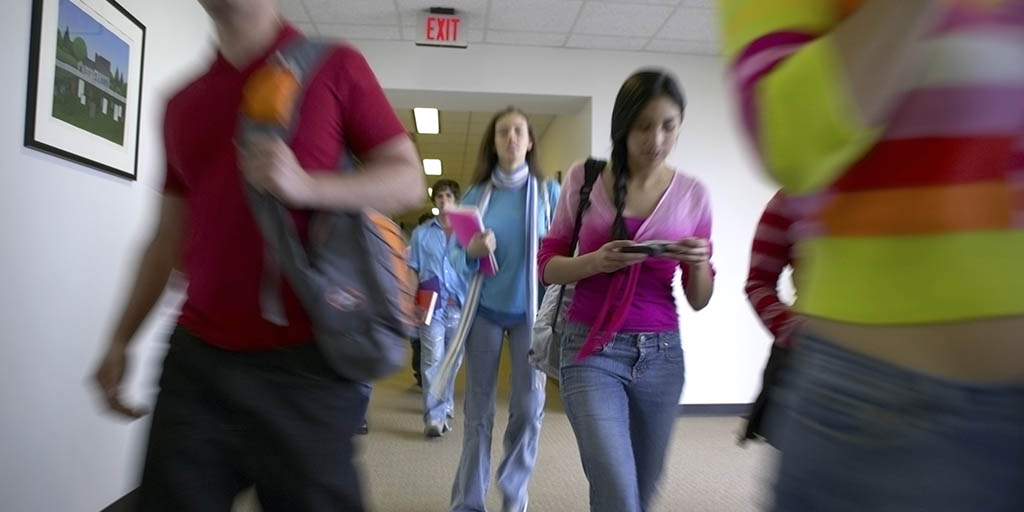Quebec survey shows ways in which students are prone to radicalization
 CREDIT: CREATAS ON THINKSTOCK
CREDIT: CREATAS ON THINKSTOCKA recent Quebec survey suggests students who are surrounded by family and friends, and have a religious or spiritual background are less likely to become radicalized than those who do not.
A survey that went across eight Quebec CEGEPs suggests that students who have a strong family and friends connection and are either religious or have a spiritual connection, are less likely to become vulnerable and turn to radicalization.
The survey, conducted by Dr. Cécile Rousseau, a professor at Mc- Gill and director of SHERPA, along with her team at the a university research centre of the Centre intégré universitaire de santé et de services sociaux du Centre-Ouest- de- L’Îlede Montréal (CIUSS) and Centre de santé et de services sociaux de la Montagne (CSSS), a research centre focused on immigration, migrants, society, health and social services in a “multiethnic setting”.
The survey was also conducted in partnership with the Federation of CEGEPs.
The survey, in which 1,894 fulltime students participated in, completed its first phase and showed that students who are second-generation immigrants are more likely to become prone to violence than first-generation immigrants.
Various questions were asked to students; the questions ranged from to what extent did their family and friends represent an ethnic or religious background, did the student face any anxiety or depression and to what extent did the students support violence at a protest to defend their group’s rights.
These questions all led to some interesting results.
According to Rousseau, over time, the team in the past has seen polarization that shifted from radicalization of opinions and discourse to radicalization of action, which is violent radicalization. Rousseau said youth; were the ones who were seen to be possibly radicalists as they are idealists as well.
“In the present time with globalization, they’re also the group who suffer more from socioeconomic hardship [and job] cuts,” Rousseau said. “There are double reasons why youth are at the forefront. One is because they suffer more from the global socioeconomic context, second because of the present time uncertainty, and also because of being younger, they can easily be influenced by extreme discourse because they are idealists and looking for meaning and solutions, and that’s great, but then they can also be more influenced by some discourse, especially when things are not so great.”
Rousseau said the study also showed that those who had a religious belief were less sympathetic towards radicalization. Religiosity was a buffer for extreme violence, Rousseau said.
According to Rousseau, both mental health and violence, along with religion were factors with this study.
Rousseau said having colleges be more open to religion and less discriminatory in general could help lead to less risk of radicalization.
Victorine Brodeur, one of SHERPA’s co-ordinators, said a religion and social network can protect students against radicalization, while violence and mental health are two risk factors that can lead to a higher rate of harm for the students.
Based on the end results, Brodeur said her team was able to come up with a few recommendations to help combat radicalization.
“First, to empower the health services in the CEGEPs because we think we should keep a decentralized network of health care, and to think of the place of religion in the CEGEP too,” Brodeur said. “We have to take into account this important dimension of the identity.”
With religion being a focus of the study, Interrobang spoke with Dr. Carolyn Chau, professor of religious studies at King’s University College.
“Religion and spirituality have long been sources of meaning, purpose and community for human beings,” Chau said. “Often what healthy religion and spirituality offer is a community and set of relationships that enable one to face the challenges and great existential questions of life. Many religions also offer the gift of accompaniment throughout life and understand life to be a journey of some sort.”
Chau said that if students who are facing anger and isolation were given support and meaning for life, then it could turn them away from being violent.
“At the heart of the original meaning of religion is a notion of tying or binding back together, and I believe that this communal, bonding character of religion and family may offer a protection against radicalization.”














